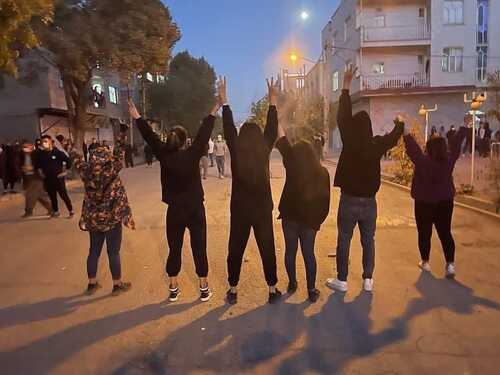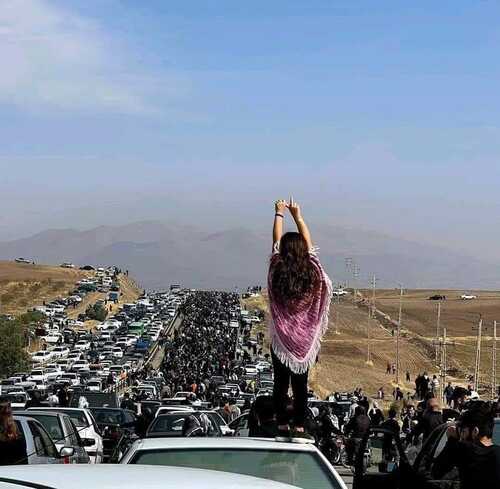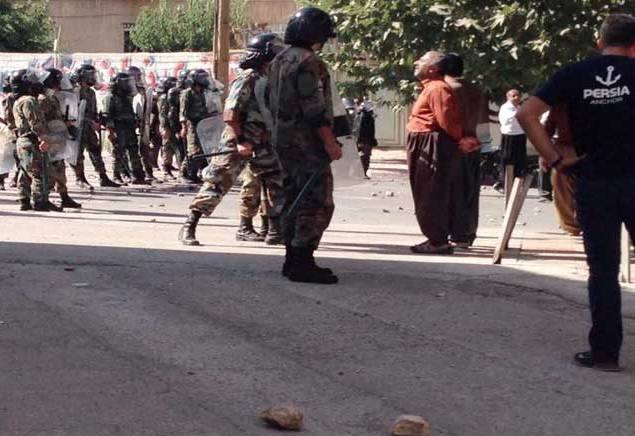Read the first part of this article here
In the previous part of this article, we discussed the civil revolution and its necessities; in this article, we will discuss the "achievements of civil revolution".
Reading about all the changes that have been able to secure democracy has shown that liberation from a dictatorship in the absence of all the social classes in a united way is not possible, that is, if the orthodox left parties developed the branched mentality in a revolution that made all the social classes follow an intellectual minority's plan and methods then the "Rhizomatic model of Deleuze" believes that all the social classes should participate in the process of opposing the dictator's power and gaining democracy based on their potentials and all of them must be a part of the revolution without being excluded.

The Civil Revolution achievements:
Civil revolution involves the total movement of this part of the society unlike political parties and organizations that only aim to achieve power, they aim to make the authorities withdraw from power, limit the power, and impose wills and demands of the society on the authorities and governments, thus the dictatorial powers do not want to develop this kind of revolution in any way because due to this form of revolution, they cannot use various forms of violence and in some occasions, they must recognize the desires and interests of this movement. This means that the first achievement of such a revolution is stopping the political power in confronting this movement and at the same time, outside the boundaries of the geography over which a dictatorship has power, the public opinion will be more and more supportive of such movements.
If civil revolution is one aspect of confrontation with the powerful authority, its other aspect is to enrich the attitude of the individuals and the society, the position of the individuals and the society who are responsible for their own destiny. If the first result of this enrichment and education is reflected in the confrontation of the powerful authority, after the collapse and disappearance of the dictatorship, it would never allow and form a bond in which another dictator would rise again, i.e., the second achievement of civil revolution is to prevent the rise and re-emergence of another dictatorship. The history of the political changes has shown that those powers that have been destroyed by conflict and violence have seen the emergence of another dictatorship in general.

Conclusion:
The general civil revolution has successfully emerged in those countries where the majority of their people are single-nation, single-culture, and single-language, that is, their country has been made of one nation and in such circumstances, the emergence of a discourse that could unite the society together is very difficult, at the same time, Iran is a multi-nation, multi-culture and multi-demand country thus, this feature has become the main obstacle to let a united discourse to be created that all the society could appeal to it. It means the field for the rise and development of civil society is not very easy to achieve, although it is not impossible for the society to emerge and develop civil society, compared to those countries that have one nation has much less hegemony and power, thus, in a country like Iran civil revolution and civil opposition alone is much weaker to be able to make the dictatorship withdraw from power particularly, among the Kurdish society that is a minority among the Iranian population but as it was mentioned, it is not impossible. The Kurds must get closer to those discourses and thoughts that have an open viewpoint and a democratic perspective for the future of Iran to be in more harmony with them.
For this purpose, Kurds must renew their relations with the democratic forces in Iran because the experiences of Iran, Iraq, Syria, and Turkey have shown that the Kurds are not the only forces capable of being hegemonic in any political context. At the same time, Kurds need a national armed force that can enhance Kurds' power in political negotiations that could happen in Iran, that is, if the main goal of Kurds' policies is civil revolution and it is led by the political parties and organizations, but due to special environmental situation of the Kurds in Iran that could make them face conflicts with both the dominant power in Iran and the other minorities, they need a national armed force to support the civil society and civil revolution to prevent the collapse of the society and the civil organizations and have positive effects on them.









